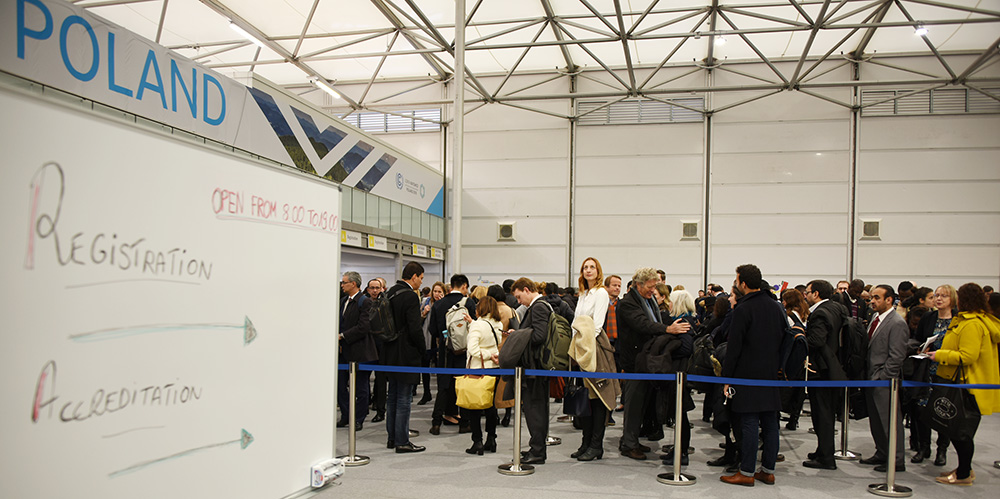Summary
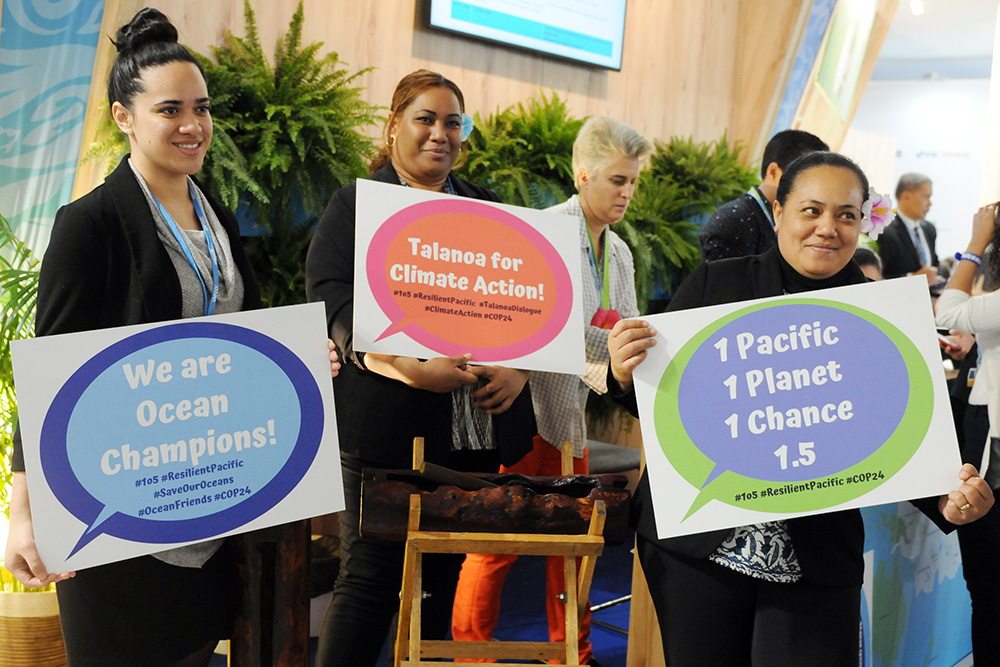
The following event were covered by IISD Reporting Services on Tuesday, 11 December 2018:
Photos by IISD/ENB | Natalia Mroz / Diego Noguera
For photo reprint permissions, please follow instructions at our Attribution Regulations for Meeting Photo Usage Page
Transformational Changes Required for a 1.5ºC World
Presented by the Global Environment Facility (GEF)
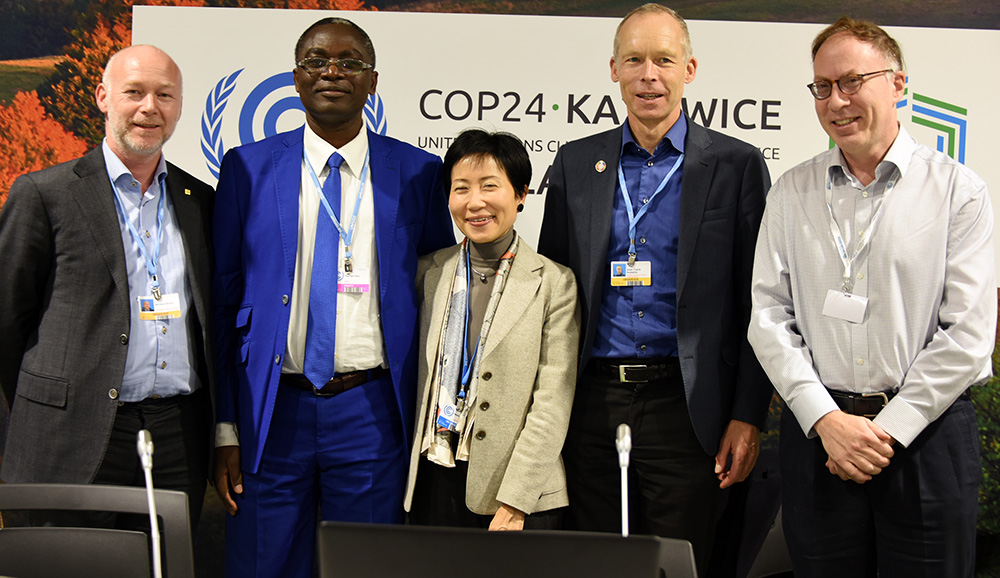
The side event presented on what is needed for landscapes and cities to be compatible with the 1.5ºC goal. Panelists presented their visions of the systemic transformations compatible with the objectives of the Paris Agreement. Jeremy Oppenheim, SYSTEMIQ, moderated the event.
Naoko Ishii, Chief Executive Officer and Chairperson, GEF, underscored the importance of the Intergovernmental Panel on Climate Change (IPCC) Special Report on Global Warming of 1.5ºC (SR15), stressing that transformation is needed in all aspects of society. She noted that humans have become the dominant economic forces putting pressure on ecological systems to a breaking point.
Elmar Kriegler, Potsdam Institute for Climate Impact Research, presented on the key findings of the IPCC SR15, noting that the transition across all sectors in limiting warming to 1.5ºC is being done at an unprecedented scale that involves behavioral change and new technologies. He highlighted that no single successful pathway exists to reaching the 1.5ºC goal and urged embedding transformational change in the sustainable development agenda to make it politically acceptable and incentivize it.
Fabiola Muñoz, Minister of the Environment, Peru, highlighted the need for vulnerable countries to develop synergies and expand their collaboration with NGOs, indigenous peoples and the private sector. She stressed that decision making has to become more efficient and faster through open dialogue with stakeholders.
Johan Rockström, Stockholm Resilience Centre and Stockholm University, highlighted that, according to scientific evidence, resilience is crucial. He stressed that tipping points are a reality and the need to define planetary boundaries. He noted that a transformation will become a reality if civil society and business coordinate in a constructive way. He also emphasized the need for planetary stewardship, highlighting the efforts of some countries to decouple economic growth from greenhouse gas (GHG) emissions and adopt a price for carbon.
Raphaël Edou, Deputy-Mayor, Cotonou, Benin, stated that the municipality of Cotonou has designed a climate action plan for the city to tackle climate change, including mitigation and adaptation, with a wide range of stakeholders involved in its implementation. He noted that close collaboration with the private sector is needed and said an integrated approach was the best way to address the issue.
Bernhard Stormyr, Yara International, noted that humans are “chewing away” at natural resources and expressed the need to work towards a vision of healthy people on a healthy planet. He noted that his organization has developed precision farming technologies that support farmers by reducing the amount of fertilizer while increasing yields, and urged for changing the business logic on how farmers are incentivized.
Moderator Oppenheim highlighted that people need to understand the implications of their consumption patterns, and urged the creation of real ownership of work plans in communities by local populations.
In the ensuing discussion, panelists responded to questions on: the viability of spreading regenerative agroecology practices to mitigate climate change; the role of the scientific community in propagating information to the policy community; incentives for sequestering carbon in agriculture; and the configuration of urban development for sustainable cities.
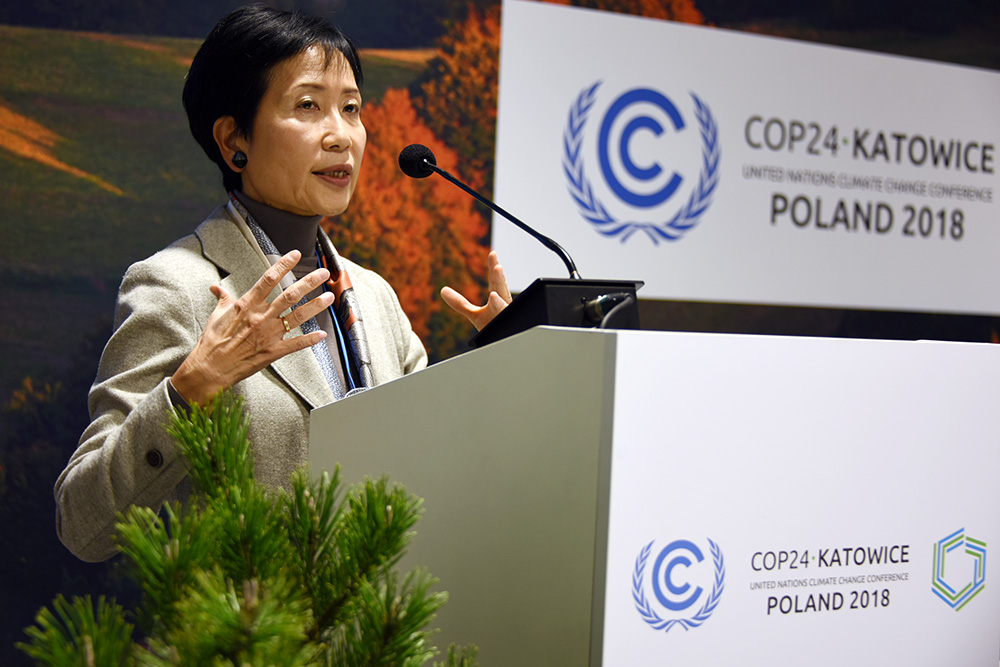
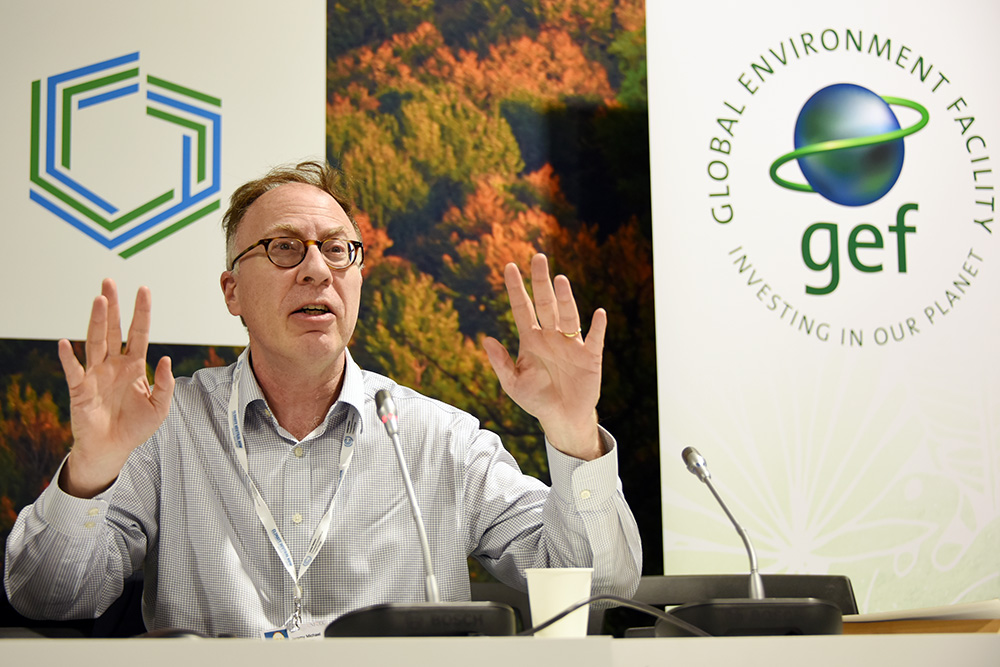
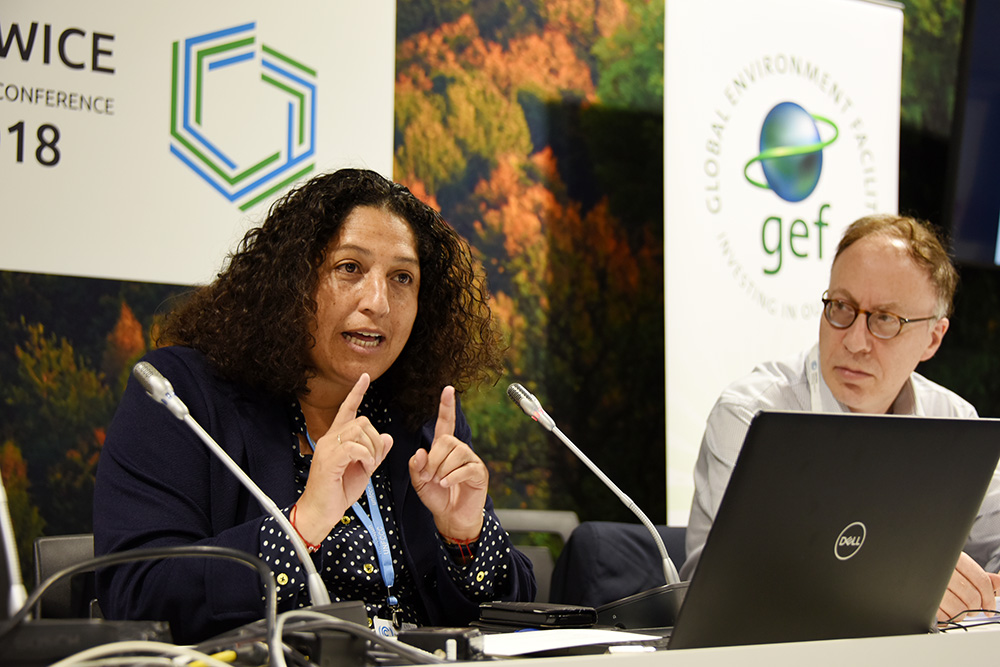
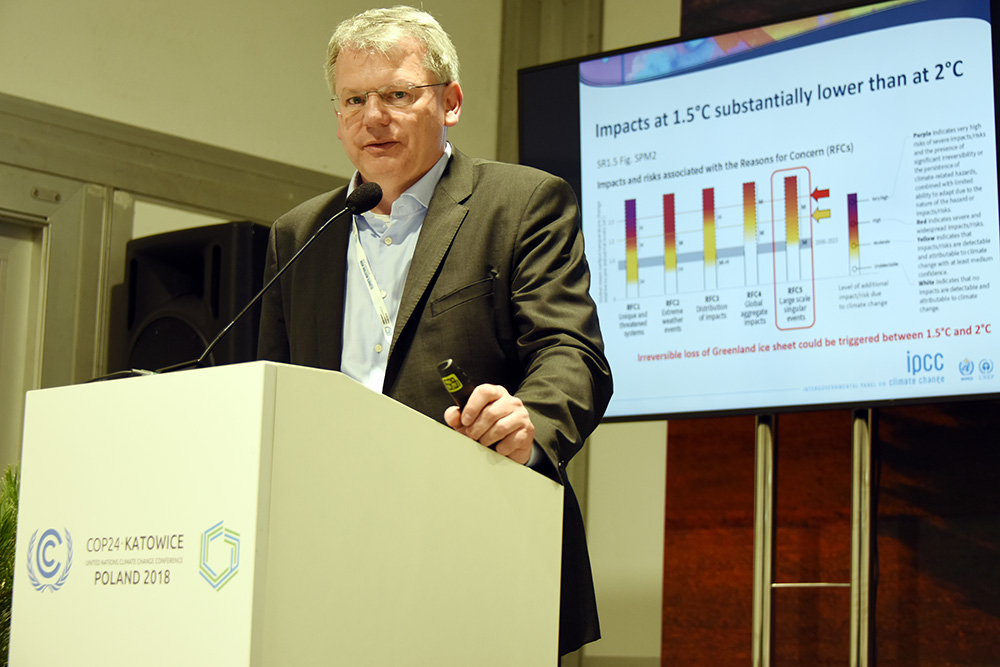
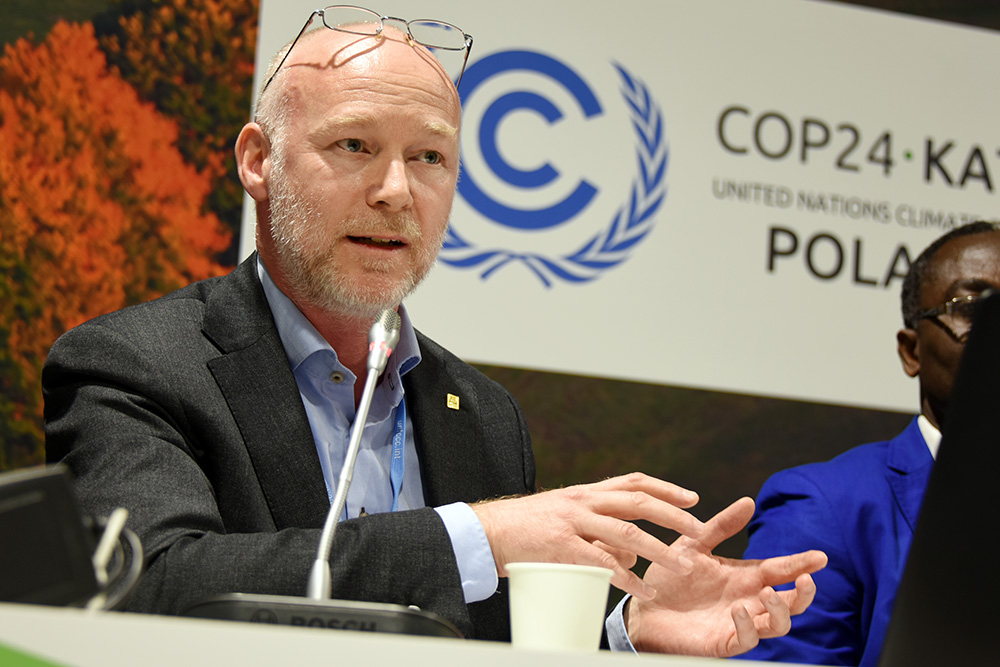
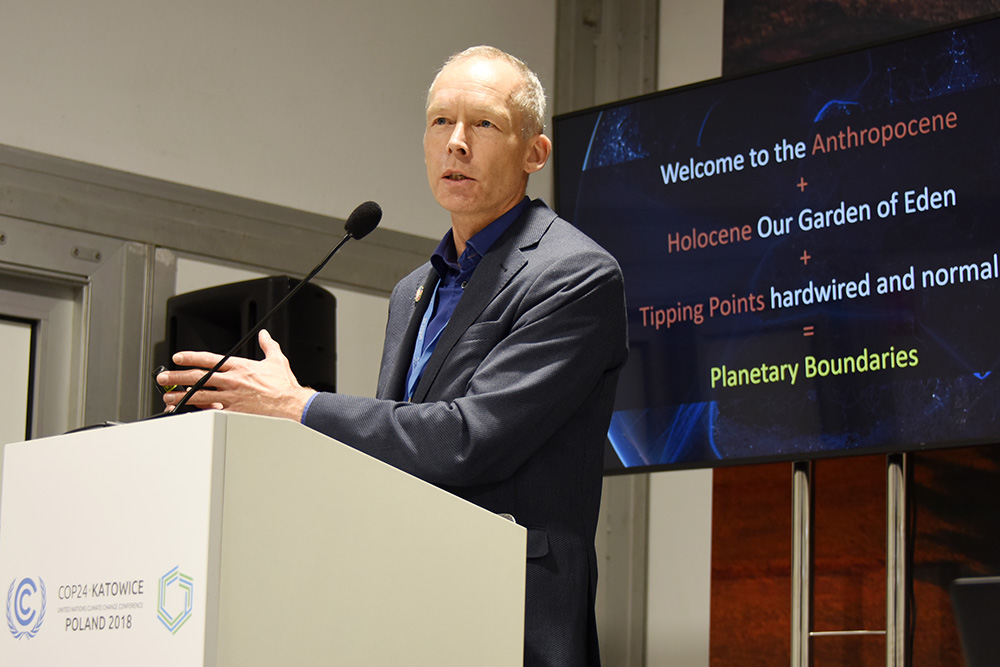
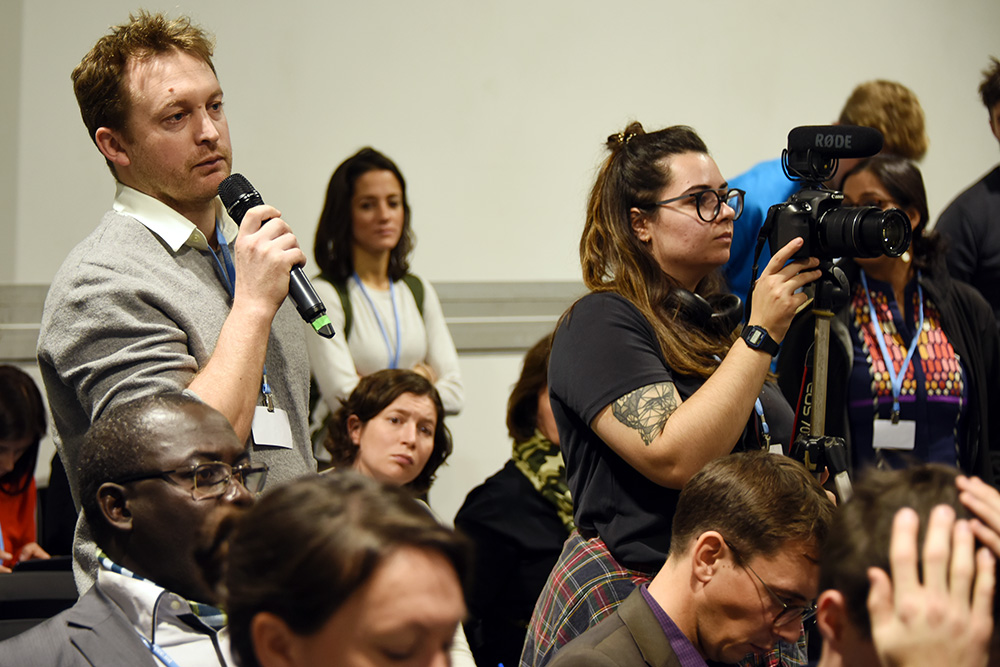
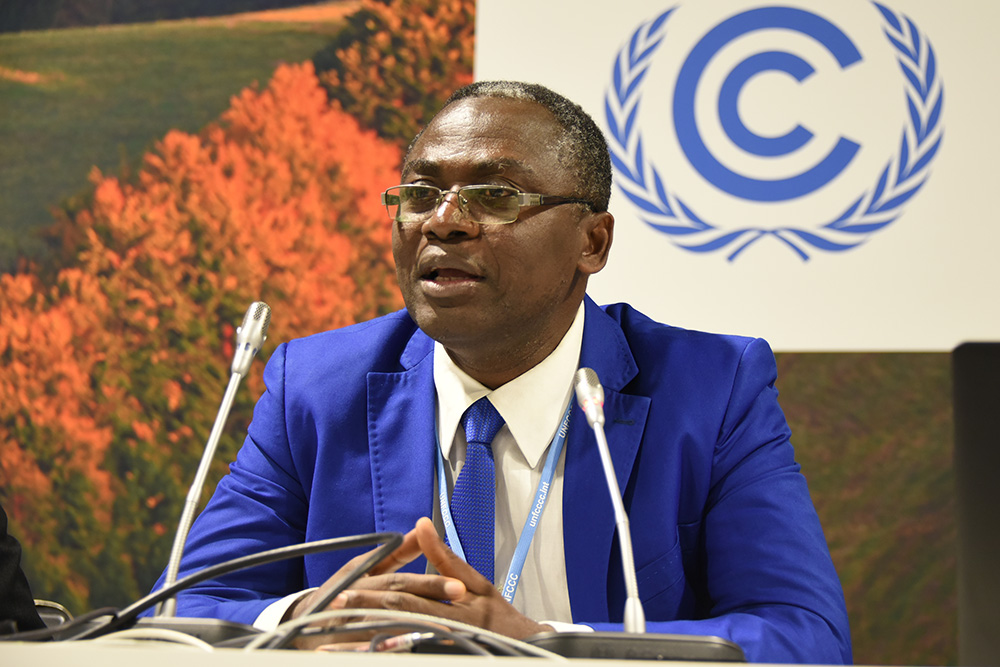
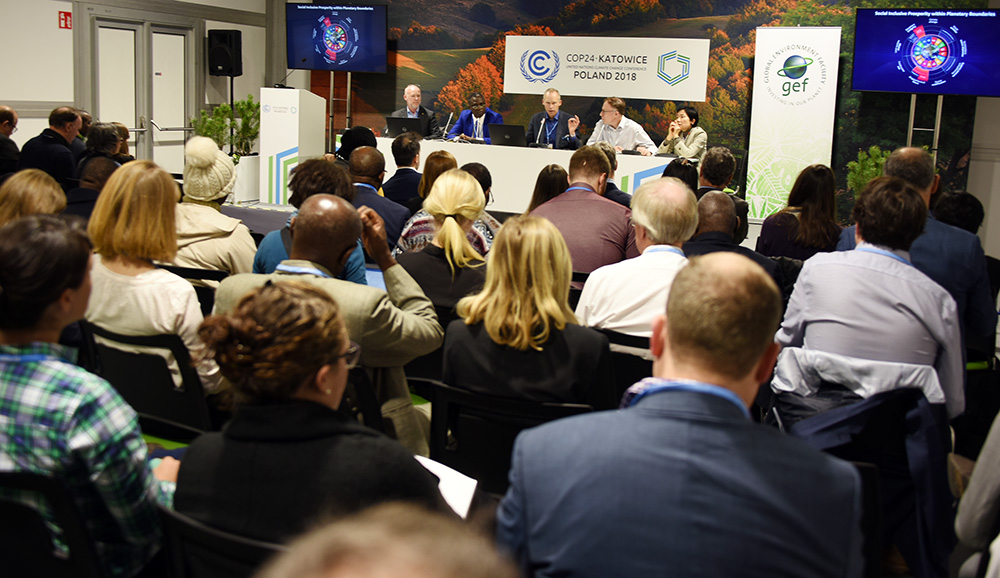
City Champions from Asia: China-Japan-Korea Joint Climate Research Initiative towards Zero Carbon
Presented by the Institute for Global Environmental Strategies (IGES), University of Technology Malaysia (UTM) and National Institute for Environmental Studies (NIES), in collaboration with the National Center for Climate Change Strategy and International Cooperation (NCSC), Korea Environment Institute (KEI), Global Green Growth Institute (GGGI), Ministry of Ecology and Environment, China (MEE), Ministry of the Environment, Japan (MOEJ), and Ministry of Environment, Korea (MOEK)
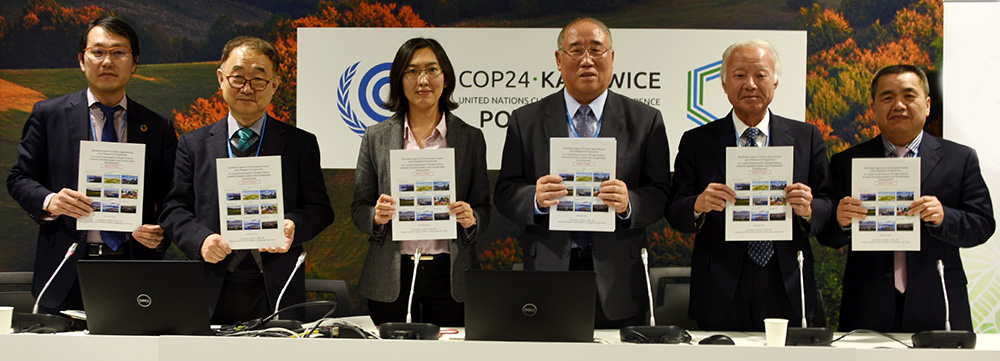
The event, moderated by Junichi Fujino, IGES, illustrated a joint research initiative between China, Japan and the Republic of Korea on decarbonization and sustainable development in cities across the three countries, including efforts to support low carbon and sustainable development in other Asian cities, such as Iskandar, Putrajaya and Kuala Lumpur in Malaysia.
Kazuhiko Takeuchi, President, IGES, stressing the role of cities in taking practical actions to reduce CO2 emissions, said that the event highlights best practices in cities from China, Republic of Korea, Malaysia and Japan.
Xu Huaqing, Director-General, NCSC, noting the need for cities to set more ambitious emissions targets, said that the Chinese government supports low-carbon energy systems and sustainable lifestyles in more than 80 cities.
Frank Rijsberman, Director-General, GGGI, said that climate change is a key driver for most Asian cities moving towards sustainable energy use, finding solutions on air pollution and sustainable lifestyle, and contributing to a circular economy.
Moderator Junichi Fujino, IGES, announced the launch of two joint reports, including cases studies, on local governments’ climate actions towards decarbonization and sustainable development.
Kazuhiko Takeuchi, President, IGES, citing the inclusion of the Sustainable Development Goals (SDGs) in Japan’s new Fifth Basic Environment Plan, stressed the concept of a regional, circular and ecological sphere that helps integrate social, environmental and economic approaches.
Xie Zhenhua, Special Representative for Climate Change Affairs, China, noted the recent progress in China’s efforts on low-carbon technology and circular economy, said that the future of the China-Japan-Korea environmental collaboration will be “more pragmatic and effective,” and suggested joint work on carbon pricing and low-carbon technologies.
Yang Xiu, NCSC, said the NCSC helps cities achieve a low-carbon transition through policy guidance, building platforms for knowledge change, and supporting projects, citing pilot projects in Wuhan, Zhenjiang and Shenzhen.
Sang-In Kang, KEI, said that 72% of non-industrial GHG emission reductions are under the authority of local governments in Korea, and highlighted efforts in advancing low-carbon science and technology in Gwangju Metropolitan City, Suwon City and Jeju Province.
A second panel, moderated by Ho Chin Siong, UTM, shared various urban climate strategies and actions towards decarbonization, introduced by: Datuk Hj. Mahadi bin Che Ngah, Executive Director of Kuala Lumpur City Hall, Malaysia; Dato’ Omairi bin Hashim, Senior Vice President of Putrajaya Corporation, Malaysia; Yeom Tae-young, Mayor of Suwon City, Republic of Korea; Jiang Kejun, Energy Research Institute (ERI); Eri Nakajima, Vice Governor of Nagano Prefecture, Japan; and Toshiyuki Yamazoe, Toyama City, Japan.
In his concluding remarks, Yoshiaki Harada, Minister of the Environment, Japan, stressed the important role of cities in decarbonization, noting that the three countries are doing their best to accelerate the region’s efforts to move from vision to action.
Cho Myung-rae, Minister of the Environment, Republic of Korea, concluded by calling for this joint research project among three countries to lead collaborative efforts on environmental cooperation as a whole.
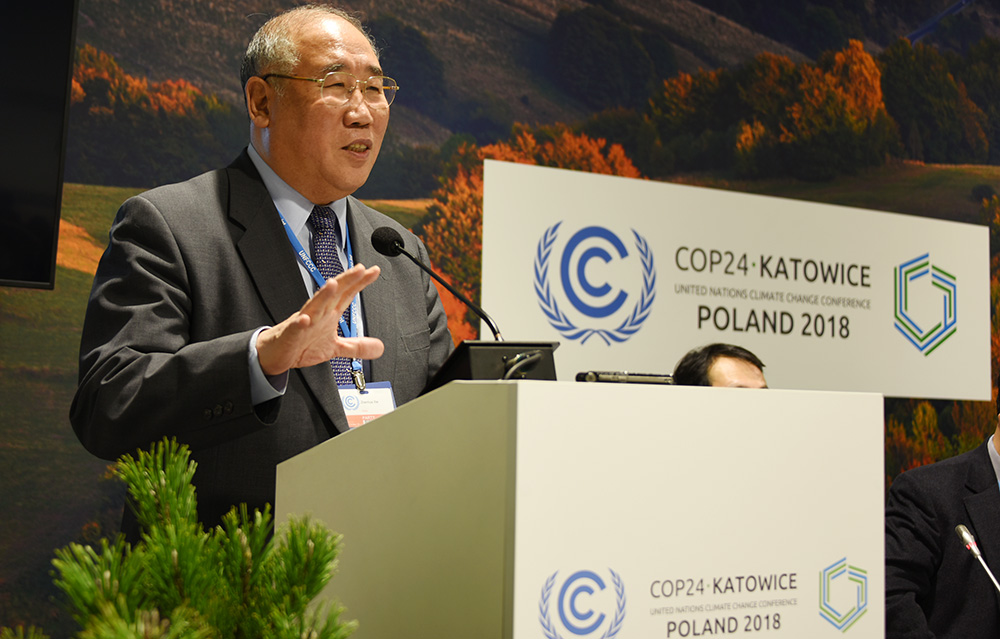
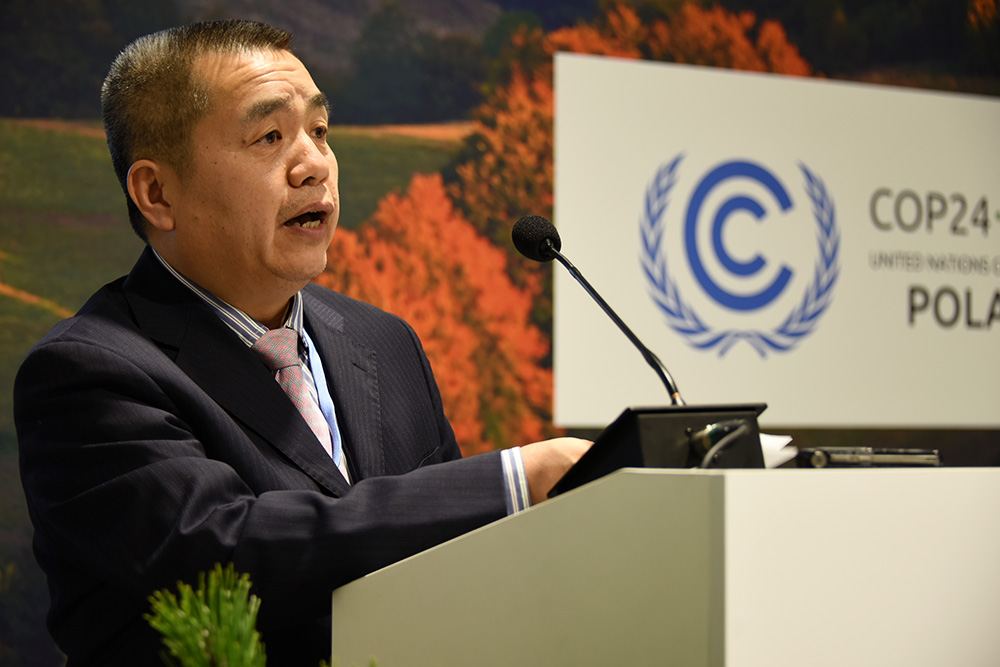
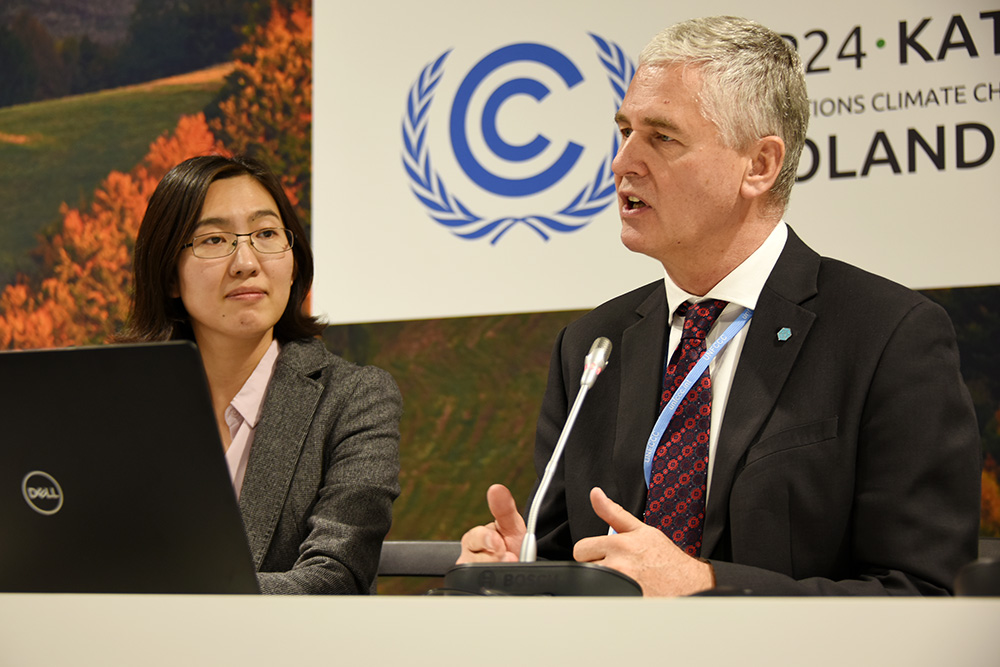
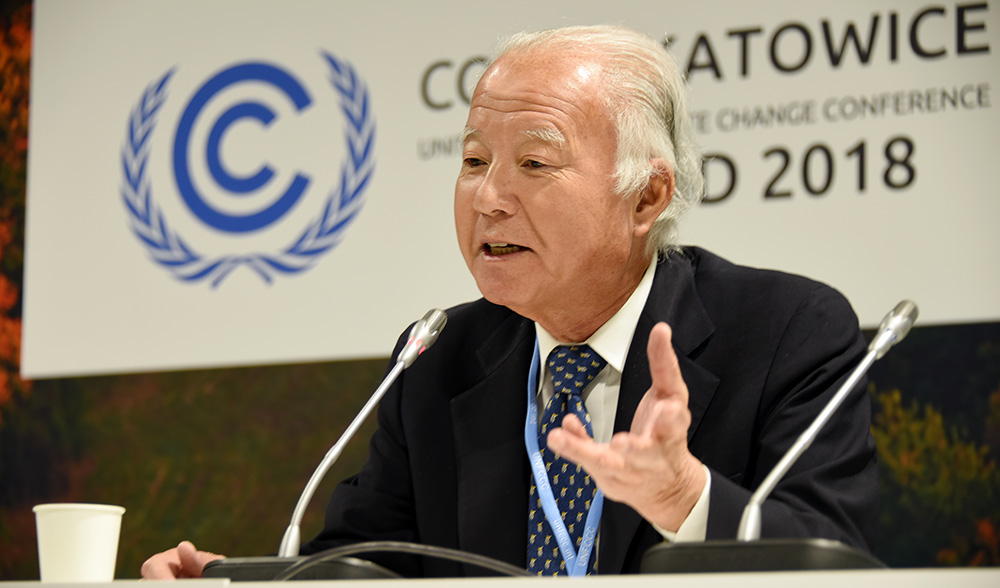
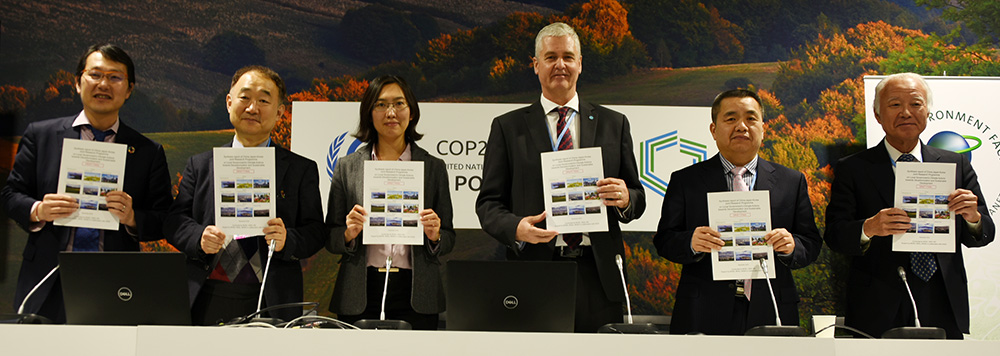
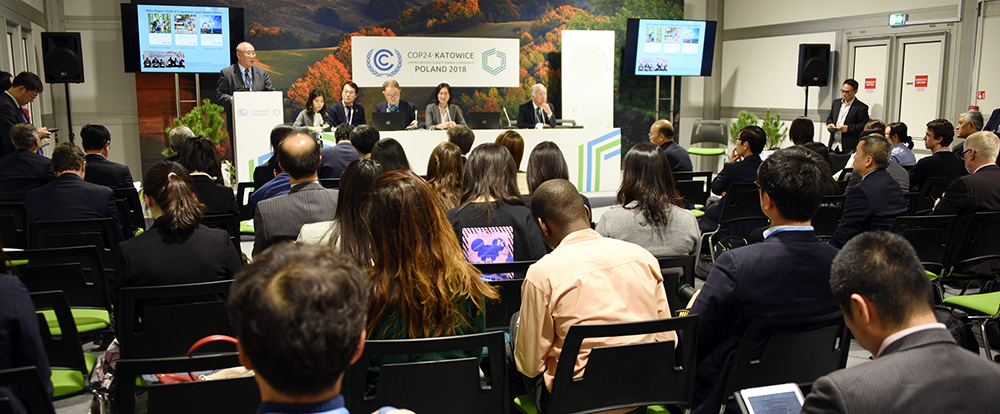
CONTACT
Junichi Fujino, IGES | fujino@iges.or.jp
Loon Wai Chau, UTM | lwchau@utm.my
MORE INFORMATION
Around the Venue
